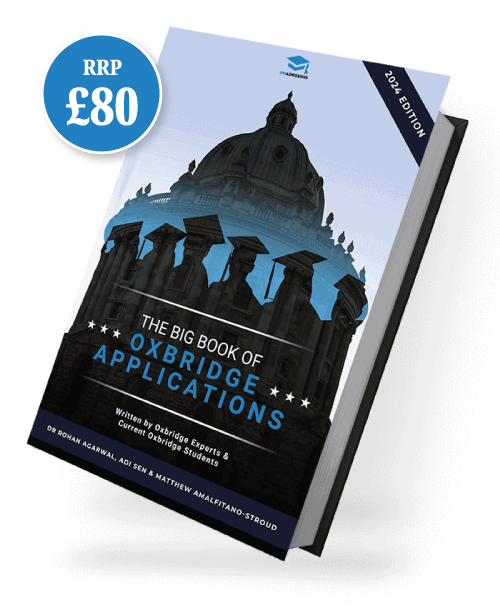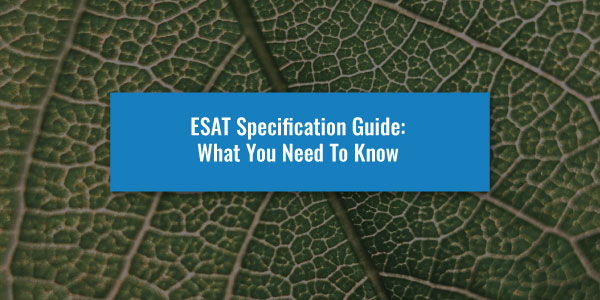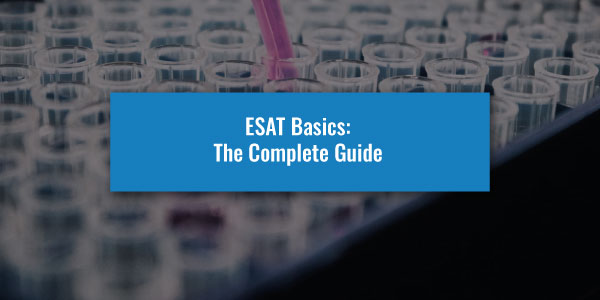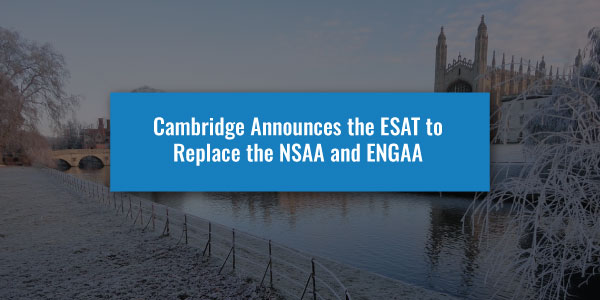Natural Sciences is one of Cambridge’s most popular courses. Each year, it sees thousands of applicants, all wanting to study at one of the most iconic universities in the world.
This makes the places incredibly competitive, so you need to be aware of the minimum entry requirements that you’ll need to meet to be admitted. In this guide, we’ll explore these entry requirements, as well as the entry requirements for other popular Natural Sciences degrees in the UK, so you can set your targets and prepare to build a competitive application.
UK Natural Sciences Degrees
You’re likely aware of Cambridge’s Natural Sciences degree, but it’s not the only university in the UK to offer this subject. Many other top universities in the UK offer undergraduate Natural Sciences degrees, including:
BSc is the standard three-year degree for undergraduates, meaning a Batchelor of Science. However, many of the universities above also offer a postgraduate Natural Sciences degree as well, which awards you with a Master of Science (MSci) degree.
Does Oxford Have A Natural Sciences Course?
Oxford doesn’t offer Natural Sciences as a degree in the same way that the above universities do. Instead, it offers single science degrees for the three core sciences; Physics, Chemistry and Biology. There are pros and cons to single science degrees versus Natural Sciences, so be sure to research both to see which will be the best fit for you.
Be aware that, when applying to Natural Sciences at Cambridge, you’ll have to specify if you’re interested in studying Biological Sciences or Physical Sciences. This won’t impact your studies straight away, but it may influence what grades you’re required to achieve to be admitted.
Early preparation is the key to a successful Cambridge Natural Sciences application.
Natural Sciences is Cambridge’s most popular degree, so writing the perfect Personal Statement, scoring highly on the ESAT and interviewing like a pro is how you get your dream offer.
Discover our Natural Sciences Programme for comprehensive admissions support by clicking the button below to enrol and triple your chances of success.
Natural Sciences Entry Requirements
Let’s review all of the key requirements you’ll need to achieve for your Cambridge Natural Sciences degree, as well as other popular degrees in the UK.
GCSEs
University applicants at most universities need to demonstrate a high standard of general education, with a general minimum of five GCSEs in grades 9-4. English Language and Mathematics are required with at least a grade 4, but English Literature will not be accepted as a replacement for GCSE English Language. As well as this, you’ll be expected to have Science GCSEs for many STEM subjects, though this is typically compulsory anyway.
However, Cambridge states there are no specific GCSE requirements for entry into Natural Sciences. While GCSE results are looked at as a performance indicator, they’re also considered contextually based on how they were achieved.
Oxford has a similar stance in regard to GCSEs for all of its courses, although it’s recommended that you have a high proportion of grades at 7, 8 and 9.
A-Levels
A-Levels are where the entry requirements for Natural Sciences get more complicated, as these requirements can vary based on multiple factors.
Firstly, the main consistent factor across all applications is that applicants are expected to have completed A-Levels in at least one science (though two are sometimes required) and Mathematics.
The grades required vary from university, but you’ll typically be expected to achieve between AAA and A*A*A. One of the lowest entry requirements for Natural Sciences (excluding the Open University which has no formal requirement), is Birbeck, University of London, which only requires BBC.
Let’s review the requirements for the top universities:
Cambridge Natural Sciences A-Level Requirements
A*A*A, including Mathematics and two sciences. Certain colleges will require you to achieve an A* in a specific science based on whether you’re applying for Biological Natural Sciences or Physical Natural Sciences. Review the course page to see what requirements your chosen college has laid out.
UCL Natural Sciences A-Level Requirements
A*AA, including Mathematics and at least one science.
King’s College London Natural Sciences A-Level Requirements
AAA, including Mathematics and at least one science. Contextual offers are ABB with an A in Mathematics and a B in at least one science.
Durham Natural Sciences A-Level Requirements
A*AA, including at least one science or Mathematics. Specific science paths will have different grade requirements (e.g. Chemistry requires A*A in Chemistry and Mathematics at A-Level). Contextual offers are AAB or A*AC,
Oxford Science A-Level Requirements
Here are the entry requirements for each of Oxford’s single science degrees:
Oxford Physics Entry Requirements:
A*AA, including Mathematics and Physics (A* must be in either)
Oxford Chemistry Entry Requirements:
A*A*A, including Mathematics and Chemistry (A*s in both)
Oxford Biology Entry Requirements:
A*AA, including Biology and another science or Mathematics (A* in any science or Mathematics)
Access "The Big Book Of Oxbridge Applications" For FREE
If you want to get into Natural Sciences at Cambridge, you need to be prepared for everything that’s required of you. Download The Big Book Of Oxbridge Applications for free now to learn about the entire process through over 350 pages, where you’ll find:
- Over 40 admissions test practice questions
- 28 example Oxbridge Personal Statements
- Interviews with Oxbridge students and graduates
- Additional downloadable resources
Fill in your details below to claim your digital copy today!

UCAS Personal Statement
As with any other degree in the UK, you’ll need to submit a Personal Statement to each of your university choices via your UCAS application. You’re entire UCAS application, including your Personal Statement needs to be submitted by the 15th of October, several months before the standard deadline.
Cambridge and Oxford don’t place much emphasis on the Personal Statement as they have other measures for judging applicants that most universities don’t use. However, it’s still important to put effort into it as, for other universities, this will be your only chance to demonstrate your dedication and ability outside of your grades.
When it comes to writing your statement, be sure to focus on relevant experiences, research and general studying you’ve completed in the field of science. Self-reflection is the key to a good Personal Statement, so ensure you discuss how you’ve grown as an applicant rather than just explaining what you’ve done.
Our Ultimate Personal Statement Guide covers everything you need to know about writing your statement, so be sure to check it out for helpful tips.
Admissions Tests
Admissions tests aren’t very common amongst UK Natural Sciences degrees, but you will have to sit one if you’re applying to Cambridge.
Cambridge ESAT
Starting in 2024, Cambridge applicants will have to sit the Engineering and Science Admissions Test (ESAT). This is a computer-based test that consists of five subtests. Of these, three must be completed in a single sitting, with applicants being able to choose two of them.
The available subtests are Mathematics 1 (which is required by all applicants sitting the ESAT), Physics, Chemistry, Biology and Mathematics 2. You’ll be able to select which of these you want to complete on the day, but you should make this decision very early in your preparation so you can focus on only the subtests you’re taking.
The test is operated by Pearson VUE and will need to be completed on either October 15th or 16th at a registered testing centre (there are over 100 in the UK).
There’s no minimum score required for this test, but due to how competitive the course is, you should aim to achieve as high a score as possible.
Calculators are not permitted.
Be aware that the ESAT is also used at Imperial College London, though it is used for Engineering and Physics degrees as they don’t offer a Natural Sciences course.
Oxford
The only one of Oxford’s single science degrees that requires an admissions test is Physics. Applicants for this course will need to sit the Physics Aptitude Test (PAT), a computer-based test run by Pearson VUE that features multiple-choice questions relating to Physics and Mathematics.
The test must be sat on October 28th at a dedicated Pearson VUE testing centre. As with the ESAT, there’s no minimum required score to be interviewed, but applicants are expected to score highly to be considered competitive.
Calculators are permitted via a digital calculator included in the testing software.
Interviews
Interviews are held in a panel interview format with multiple interviewers and are usually done remotely (a select few Cambridge colleges offer or require interviews in person). These last 30 – 40 minutes and will feature a variety of question types, as well as time for you to have open-ended conversations with the interviewers regarding relevant topics.
In some cases, you may need to attend extra interviews with different colleges in January if you’re been pooled. Offers can be released anywhere from a couple of weeks to a few months after your interview, so be prepared to have to wait to find out how you did.
Interviews at non-Oxbridge universities are less common but can still occur. If you’re invited to one, it will likely be much later than your Oxbridge interviews as the application deadline doesn’t close until the end of January.
Conclusion
You now have a much better understanding of what you need to do to earn your offer for Natural Sciences at Cambridge and other universities. It’s a tough process to get in, but it’s absolutely worth it once you’ve begun your studies!
It’s important to keep in mind that, while these are the minimum requirements, you should aim to exceed these expectations wherever possible to create a truly competitive application. This means rigorous preparation for each part of your application, though it’s possible to get support for this to further increase your chances of success.
If you want to learn how you can access comprehensive support for every part of your application, discover our Cambridge Natural Sciences Programme, which guides you through the process with support from an expert tutor, extensive resources and much more. We hope this guide has helped you start your preparation journey, and we wish you the best of luck!
Our expert tutors will guide you to Cambridge Natural Sciences success.
Applying to Cambridge’s most popular course is extremely competitive, so yo’ve got to give yourself the best chance of success. We help you craft the perfect Personal Statement, achieve a highly competitive ESAT score and teach you how to Interview effectively – covering all areas of your application.
Discover our Cambridge Natural Sciences Premium Programme for comprehensive admissions support by clicking the button below to enrol and triple your chances of success.








